Phantom of the Paradise (1974)
“But I wrote the music!”
|
Synopsis: |
|
Genres, Themes, Actors, and Directors:
Response to Peary’s Review: While Phantom of the Paradise was “poorly received by many critics when released, it has attained a large cult following” — and in his Cult Movies 2 book, Peary discusses this movie at greater length. He writes that, “Remarkably, De Palma put together a simple storyline despite combining plot and theme elements from numerous sources, including Goethe, Oscar Wilde, Nathanael West, Gaston Laroux’s 1911 novel The Phantom of the Opera as well as the 1925, 1943, and 1962 movie adaptations, King Kong (1933), Beauty and the Beast (1946), possibly The Hunchback of Notre Dame (1923 and 1939 versions), and Alfred Hitchcock’s Psycho (1960) and The Man Who Knew Too Much (1956), with its assassination-attempt-at-concert sequence.” He notes that, “looking back, it’s hard to believe the hostility some critics felt toward the film” — but it’s equally fortunate that Pauline Kael “expressed admiration for [De Palma’s] wit, manic theatricality, and wild love for his medium,” in addition to recognizing “back then that De Palma’s amateurish streaks and erratic talents (which are still very much in evidence) are not, in his case, liabilities.” Indeed, “his unpredictability — you can’t count on him to direct or write two scenes in a row that are polished or follow cinematic conventions — is one of the reasons he’s been an interesting filmmaker.” I agree with both Kael and Peary. Peary points out how appropriate it is that this film “begins with [a] Rod Serling… narration,” given that “most episodes on Serling’s classic television anthology The Twilight Zone were about characters who lose their identity” — and “in Phantom, Winslow [Finley] becomes the symbol of all struggling young songwriters whose music (their identity) is stolen by big-shot record producers and musicians.” In fact, he notes, Winslow “represents all young artists, filmmakers included, who are used and discarded without the world ever knowing they existed.” Indeed, while this black comedy is often played for laughs — it’s easy to ridicule how naive and inept Finley’s Phantom comes across time and again — he does metaphorically represent the extreme result of every insult ever hurled at a deeply creative person. Meanwhile, Beef’s campy performance instantly evokes The Rocky Horror Picture Show (1976), which at the time was still just a stage production; while Graham can’t really hold a candle to Tim Curry (who could?), he has a lot of fun with his role and is consistently enjoyable to watch. Also weirdly good is Williams as the gnome-ish Swan: the sway this guy holds over seemingly the entire world is truly diabolical. Redeeming Qualities and Moments:
Must See? Categories
Links: |
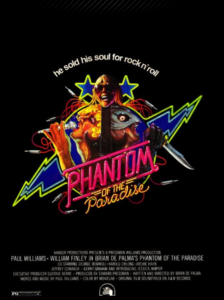
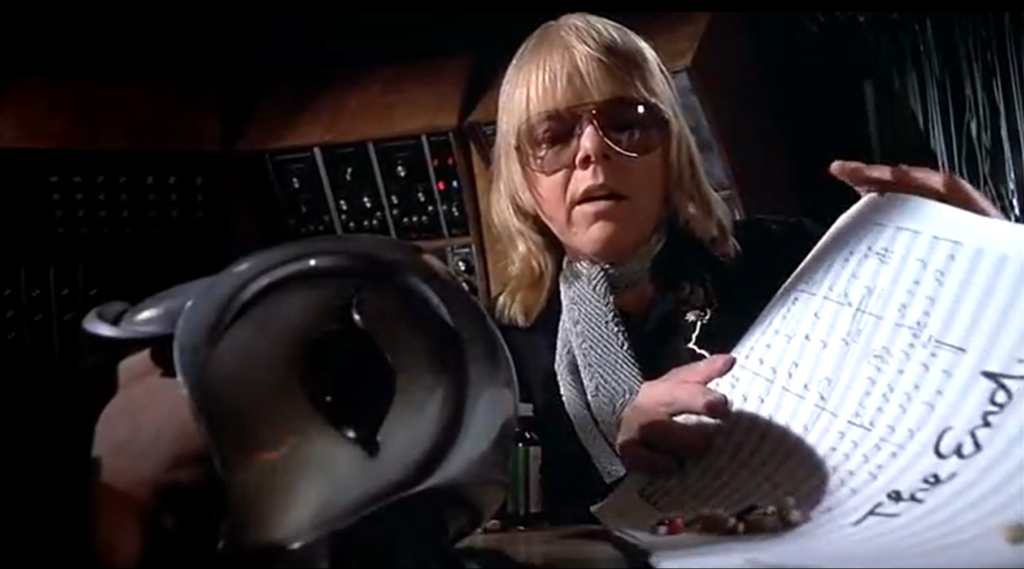
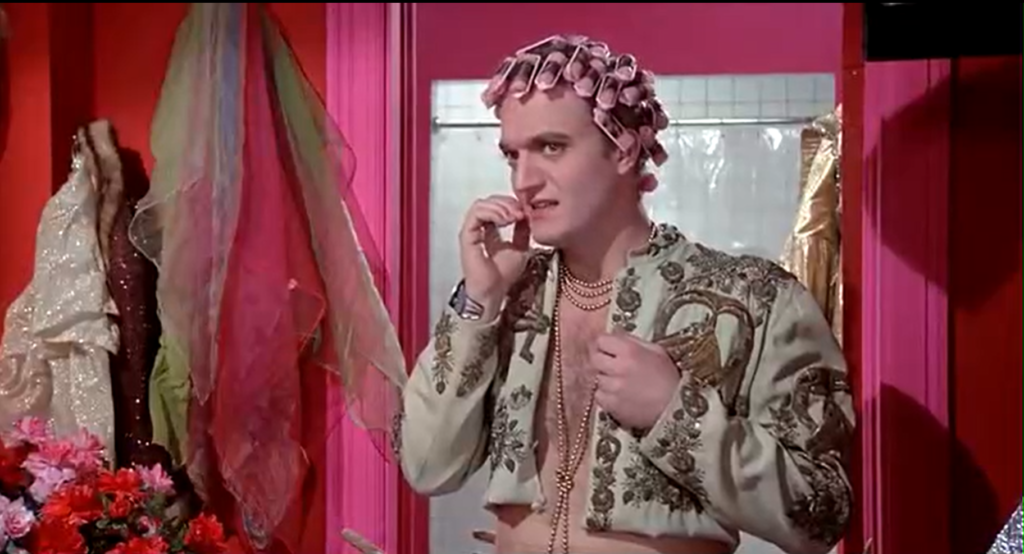
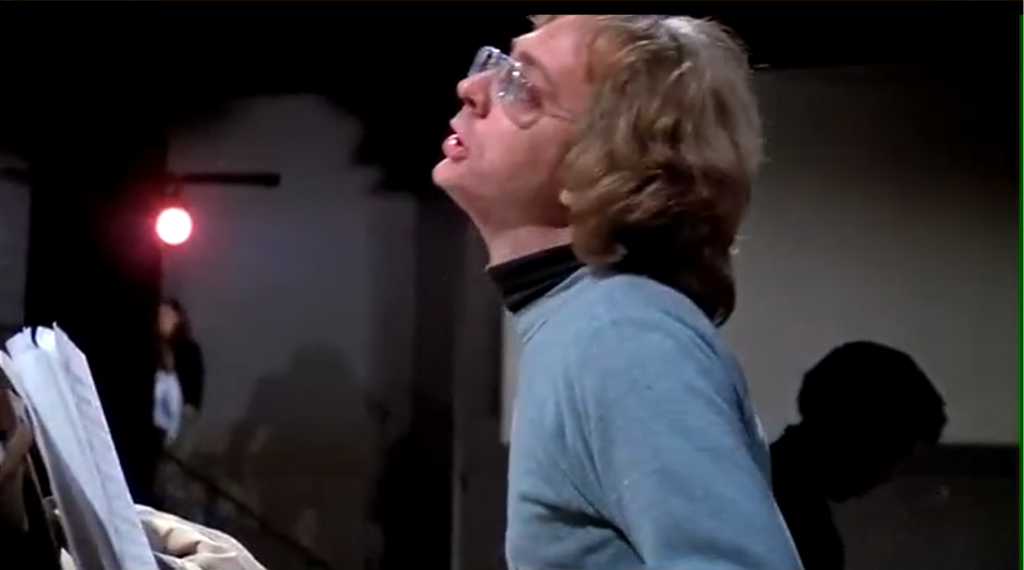
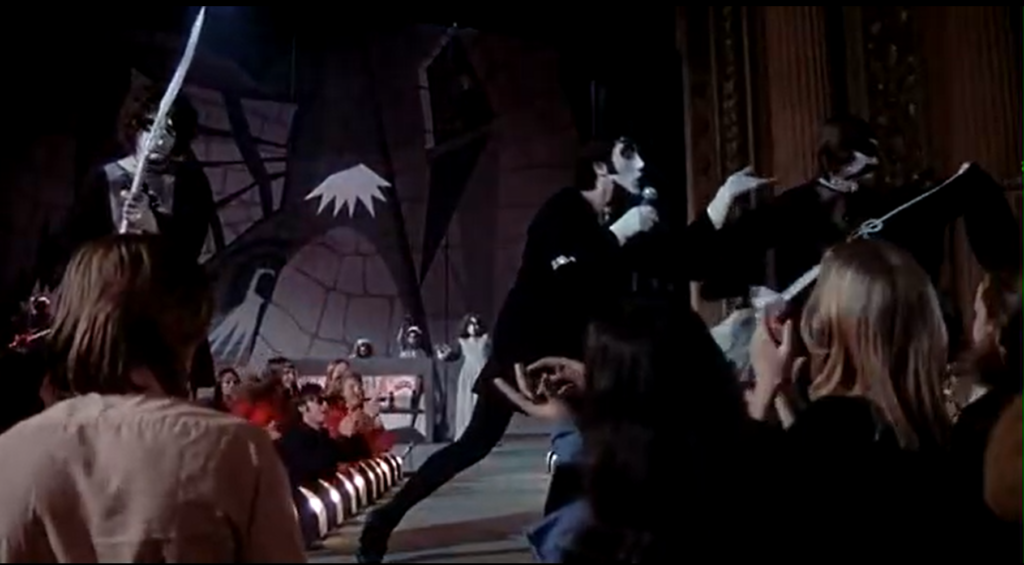
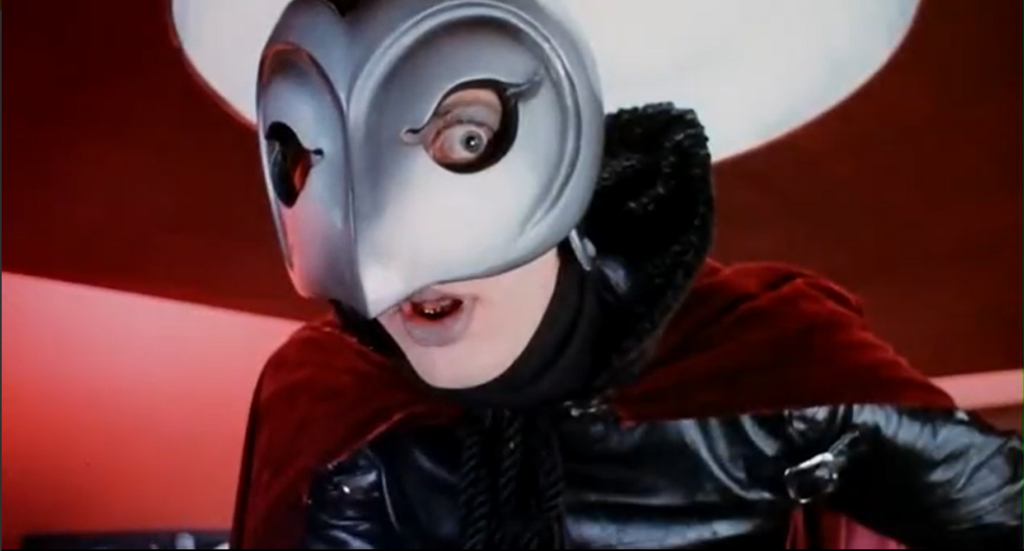
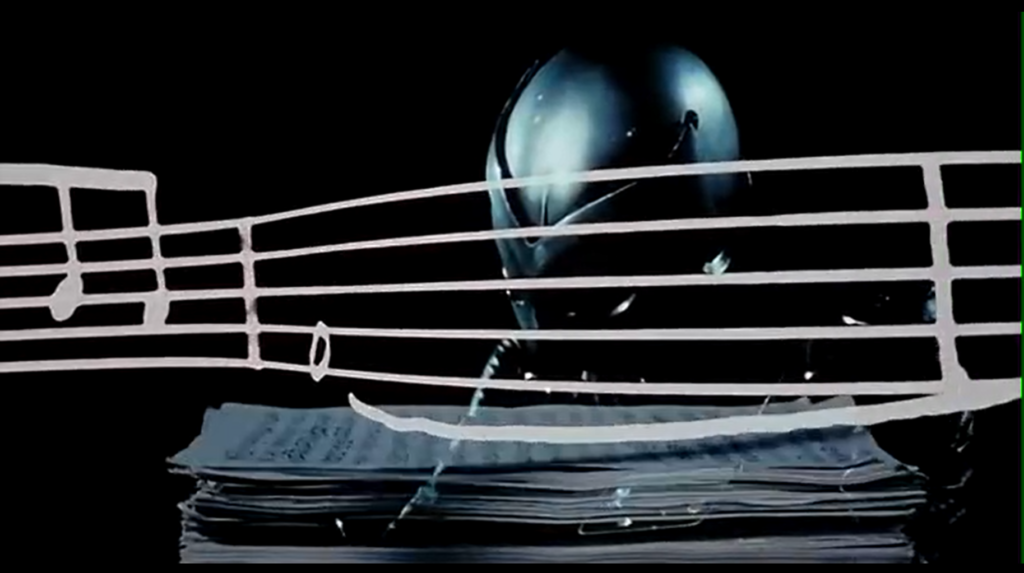
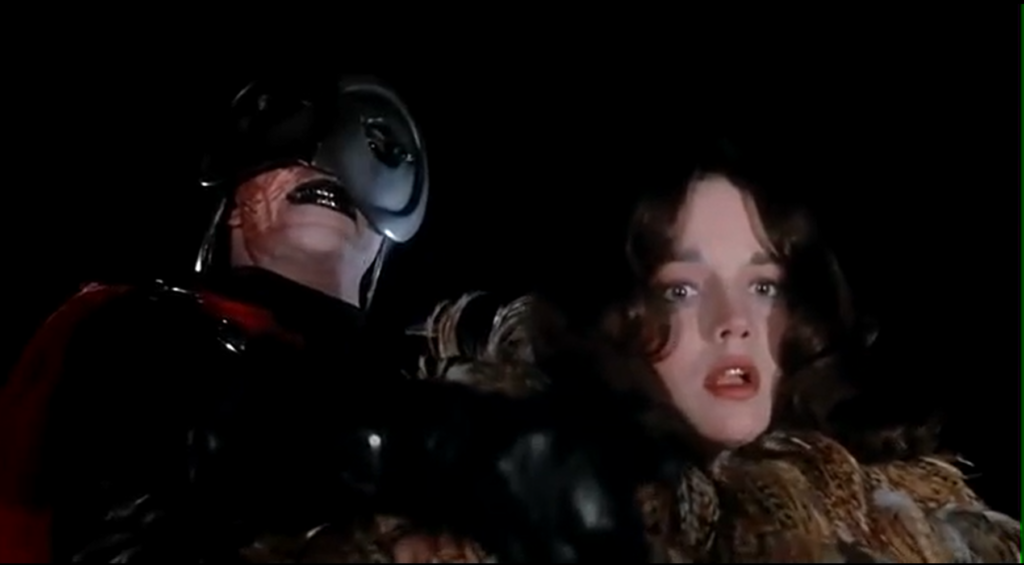
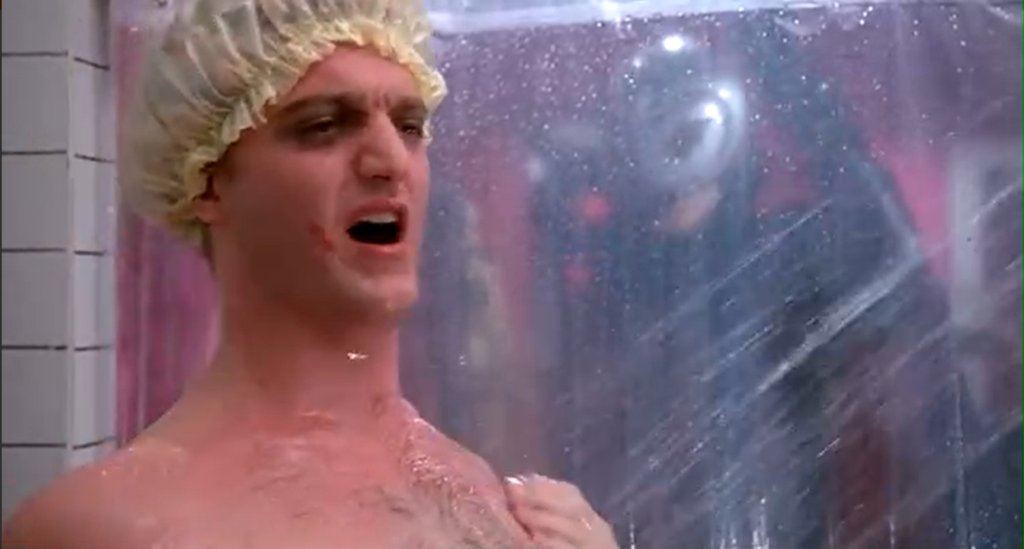
2 thoughts on “Phantom of the Paradise (1974)”
Agreed; must-see, as a genuine cult classic. As per my 1/7/21 post in ‘Revival House of Camp & Cult’ (fb ):
“But I’m innocent! Swan stole my music and *framed* me!!!”
‘Phantom of the Paradise’: Sometimes you revisit a film, and you find yourself enjoying it in a way that seems fresh. That was my experience rewatching ‘POTP’. Maybe because it had been way too long since I’d last seen it and because I’d forgotten the film’s many strengths. But from Rod Serling’s delightfully scary – or, rather, ominous – introduction through Archie Hahn’s downright delirious lead vocal (inc. grabbing his crotch for the high notes) for the swinging ‘Goodbye, Eddie, Goodbye’, I was finding myself hooked.
If De Palma’s cult classic is ultimately uneven, however, that’s not because of his writing or direction; both are sharp and rather endlessly inventive as they mix the original Leroux novel with Oscar Wilde, Goethe, ‘The Cabinet of Dr. Caligari’, ‘Psycho’, etc. Also thrown in are in the musical and plot-point (i.e., the on-stage making of a man) influences of ‘The Rocky Horror Show’ – which, at that time, had only been a stage show. (When ‘RH’ became a film, it – in turn – referenced ‘POTP’, esp. during ‘Over at the Frankenstein Place’ and ‘I’m Going Home’.)
‘POTP’ does have a bit of a shortcoming; Paul Williams’ score, but I’ll qualify that. On the one hand, it’s perfectly fine in thematic terms and effective-enough for what the story needs. It’s just that it could have used more zing in its overall appeal as a score. That’s where ‘Rocky Horror’ really puts it to shame. (Although, ‘RH’ has many more characters – which affords expansion and variety.)
De Palma gathered a terrific cast. My least favorite is probably Paul Williams as Swan – though I can see what he was going for, more of a quiet menace. He’s not awful (and he’s actually often impressive) but, to me, he seems to lack something in the presence department.
The rest of the cast makes up for whatever needs compensation. William Finley is perfection as the Phantom Winslow and comedy gold is provided by both George Memmoli as Swan’s henchman and, esp., Gerrit Graham as the irrepressible Beef (“Oh, I knew I shouldn’t be screwing around with a dead man’s music. This place is ….. possessed.”)
Lastly, Jessica Harper makes something of an incandescent debut, here offering glimpses of the bravura performance she would give in the ‘RH’ sequel, ‘Shock Treatment’.
⭐️⭐️⭐️ out of ⭐️⭐️⭐️⭐️
A good, fun film and a genuine cult item. It looks fab, sounds fab and the cast and De Palma are having a ball. However, I don’t think the film is particularly significant or influential in any way and as such isn’t must see for FFs.
My take on “must see” films are that they have to be classics, historically significant and generally influential. Very few cult items fit that bill. I also think that a film regarded as a genuine cinema classic with high regard from historians and critics can’t really be a cult item. A good example would be Blade Runner (1982) which was a failed giant that in it’s day was poorly received by critics and the public.
But, over time – and the 1992 release of work in progress cut (erroneously called director’s cut) – it has become a bone fide cinema classic and is no longer a cult film. The same thing has happened to John Carpenter’s The Thing from the same year.
Phantom is a cult film but it’s made no real waves so not must see by my definition. That said, it’s well worth seeing as a piece of genuinely entertaining fluff.